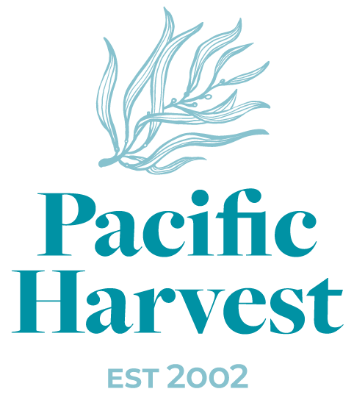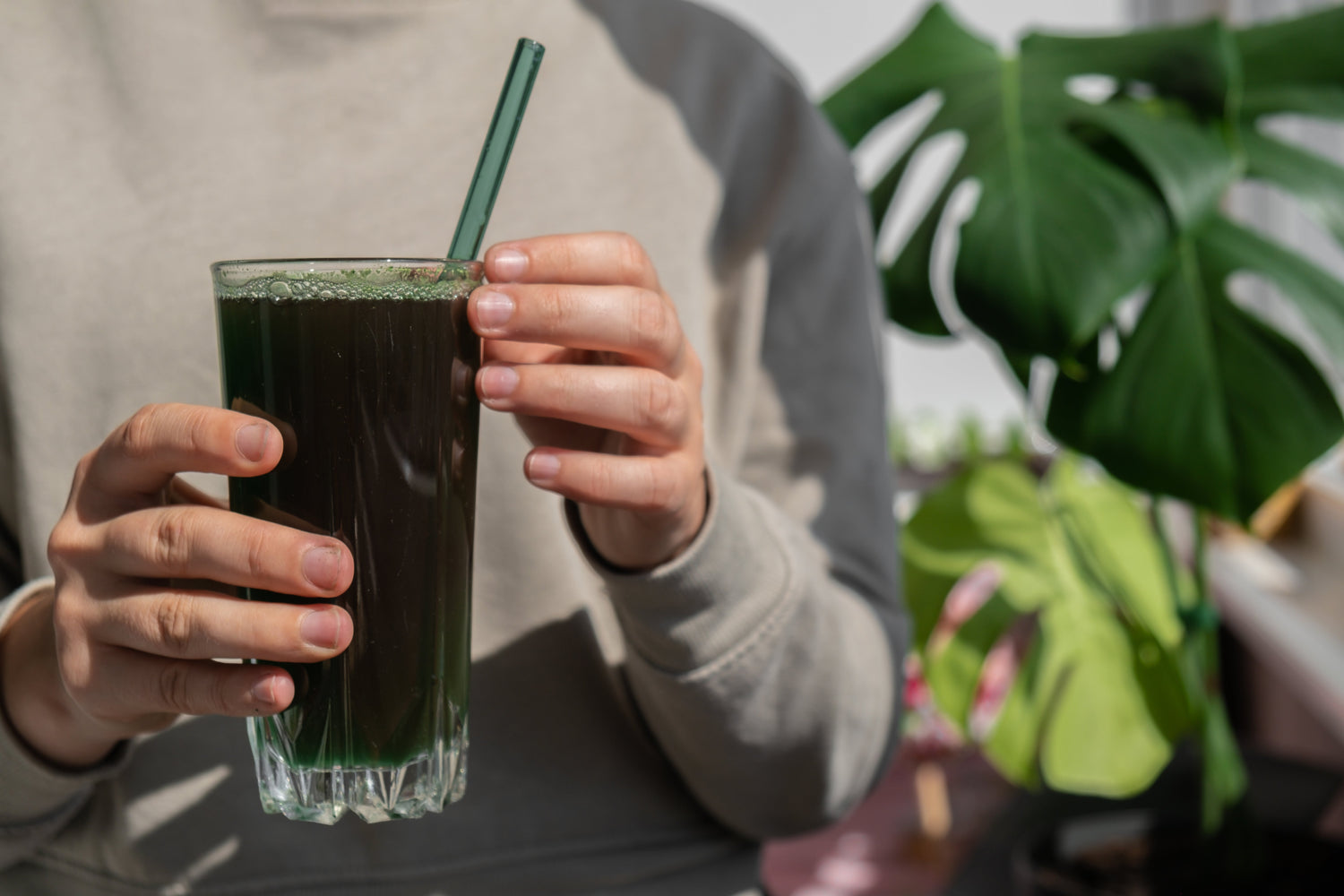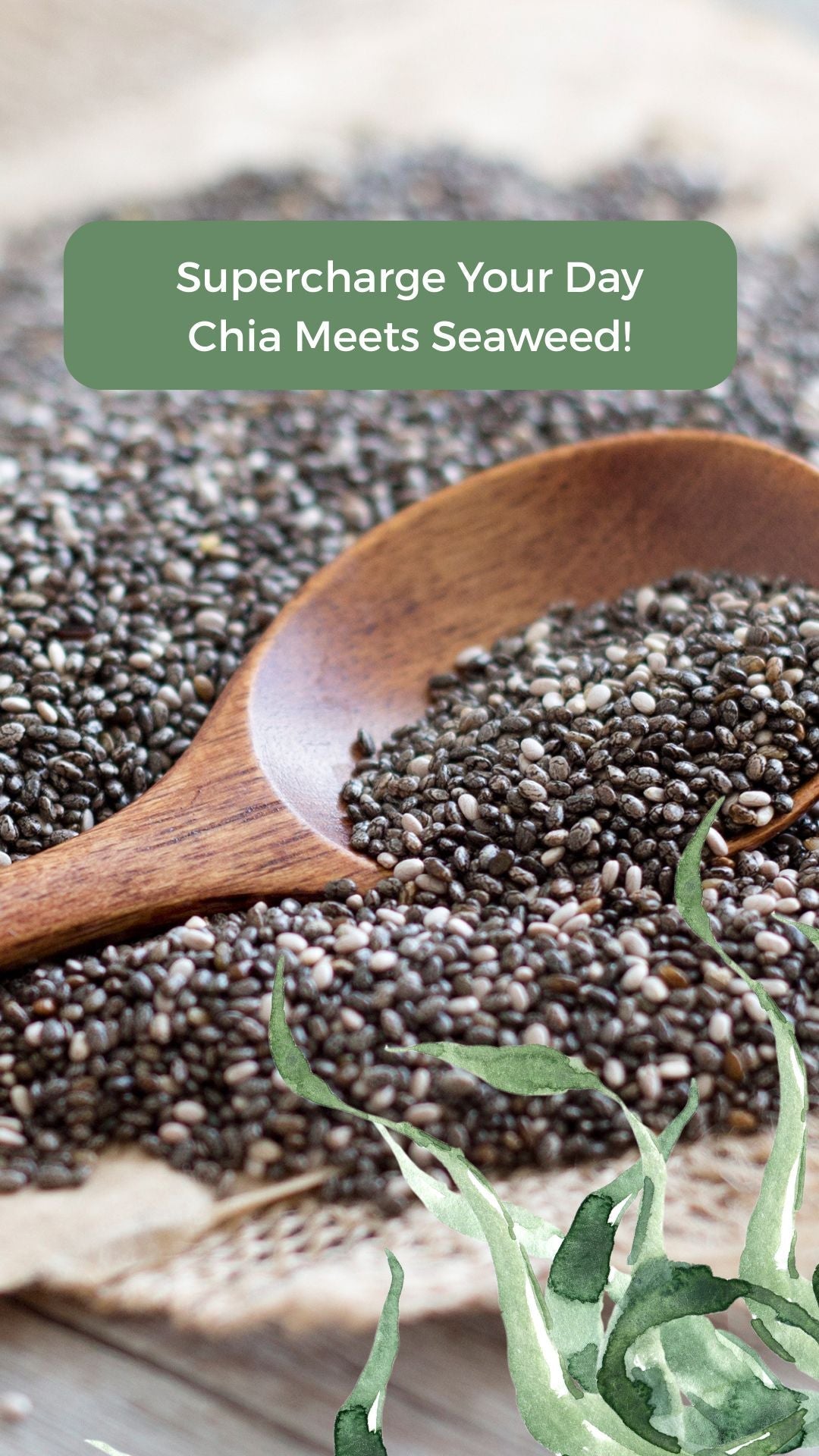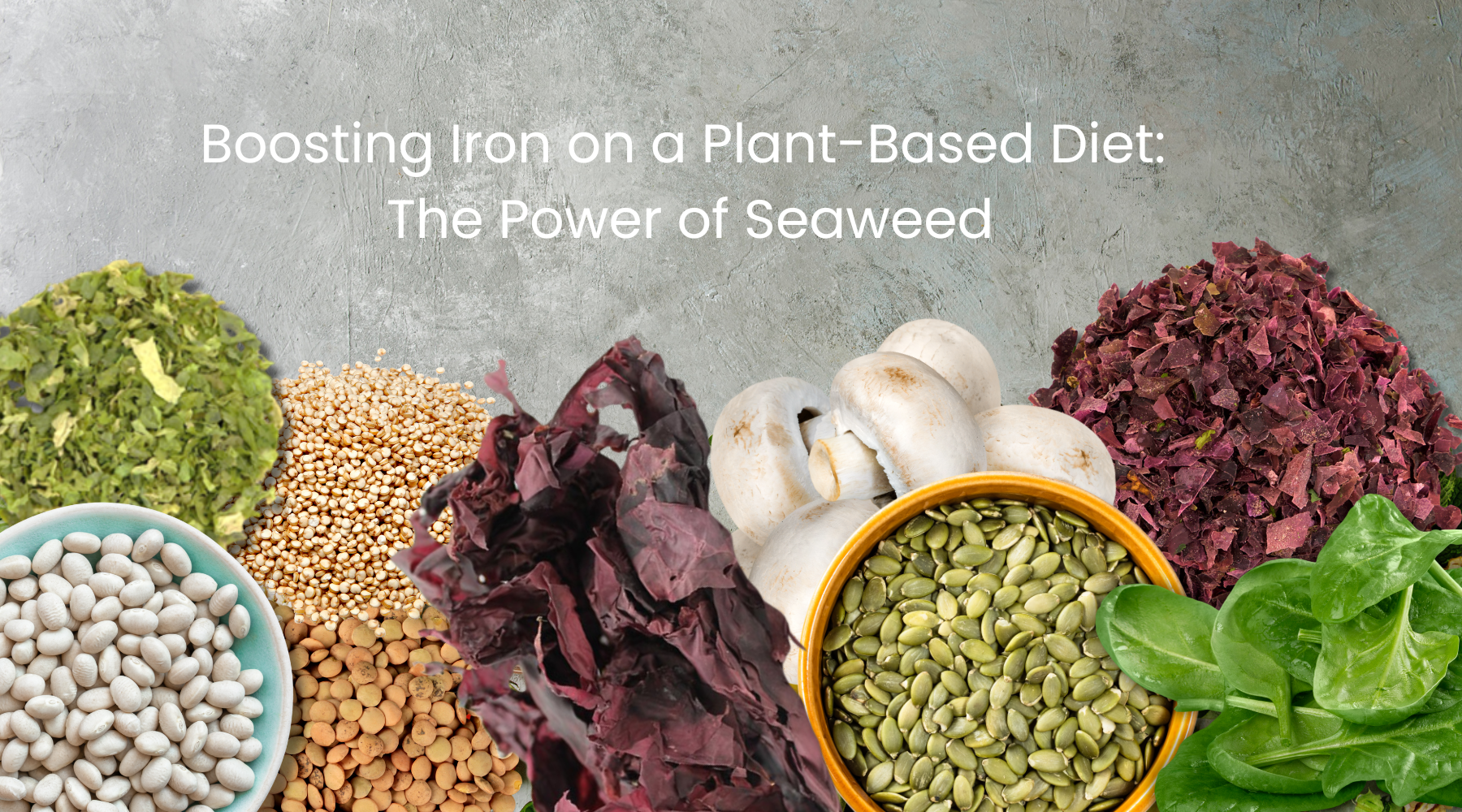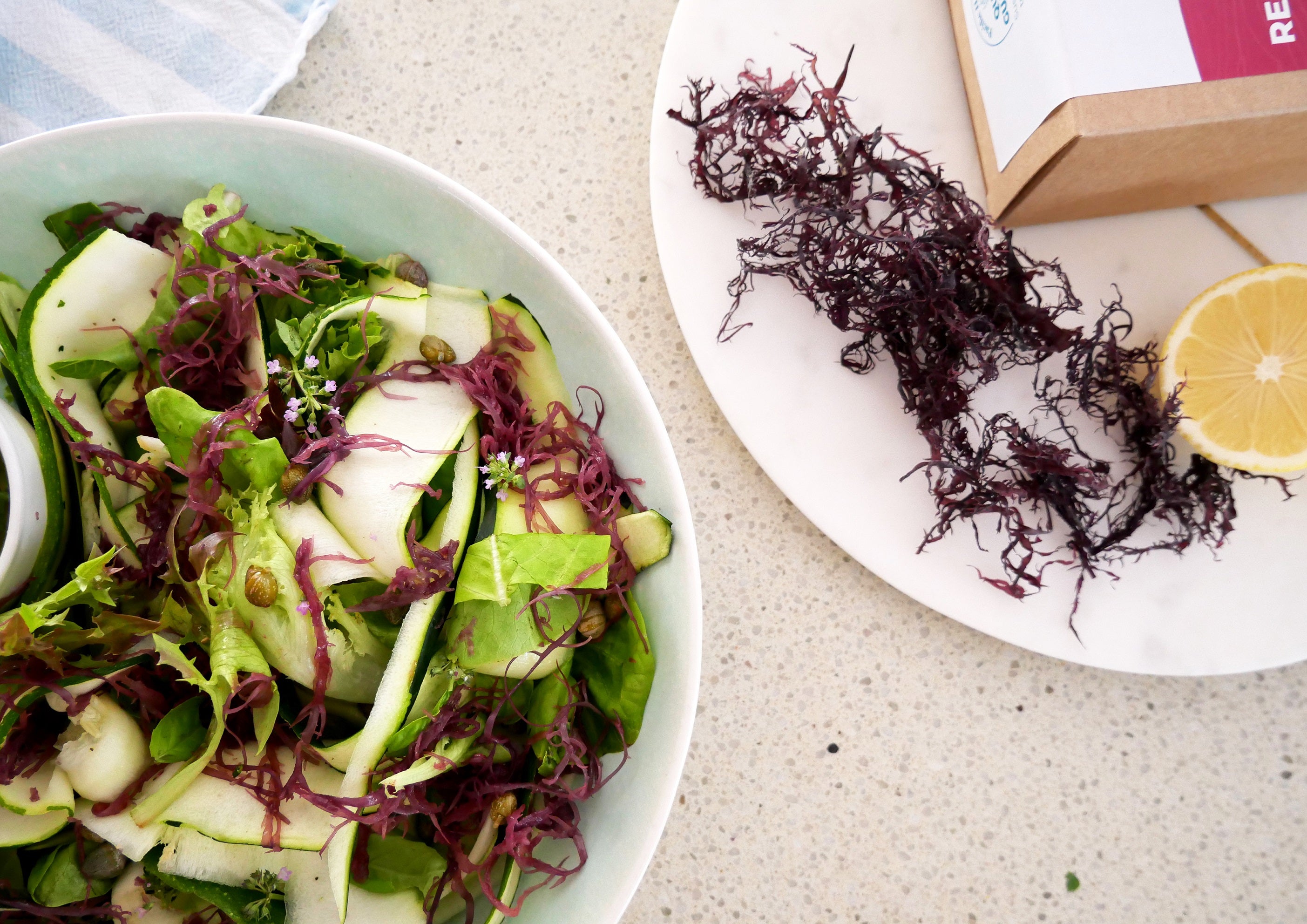As we age, our bodies go through many changes, some visible, some internal, more subtle changes. From a slower metabolism and reduced bone density to changes in digestion and immune function, aging can bring a range of new health challenges. The good news is nutrition can make a big difference in supporting healthy aging.
One simple, natural food that we are becoming increasingly aware of for its nutritional value are sea vegetables, or seaweeds. Used for centuries in traditional diets, seaweed is now being recognised for its rich combination of minerals, dietary fibre, and bioactive compounds that support the overall wellbeing of aging populations. This, and their amazing umami profile can transform meals from bland to brilliant, with some simple additions!
How can Advancing Years Impact Our Health?
Aging can affect many areas of our physical and mental health, including:
- Bone health - reduced calcium absorption and changes in vitamin D metabolism weaken bones over time and increase the risk of fractures
- Muscle mass - gradual loss of strength and mobility due to sarcopenia (age-related muscle loss)
- Cognitive function - memory and focus may decline impacting daily activities
- Immune system - reduced ability to fight infections increases vulnerability to illness
- Digestive health - slower digestion and reduced nutrient absorption can lead to discomfort and nutrient deficiencies
- Appetite and energy - smaller meals and lower food intake can lead to reduced energy levels
These changes in health can lead to nutritional gaps, especially when cooking becomes harder or appetite decreases.
How Can Adding A Little Seaweed Support Healthy Aging?
Seaweeds can make a delicious, nutrient-rich addition to many meals. This simple addition can help older adults meet their nutritional needs without adding bulk or complexity to meals.
1. Nature’s best source of Iodine
Iodine plays a vital role in supporting thyroid health, which in turn regulates metabolism, energy levels, and cognitive function. Among natural foods, seaweed stands out as one of the richest sources of iodine, particularly brown varieties such as kelp and wakame. That said, balance is key! While iodine is essential, too much (especially from concentrated sources like kelp) may affect thyroid health in some individuals.
2. Bioactive compounds
Beyond its impressive mineral content, seaweed is also rich in unique bioactive compounds that contribute to its health-promoting potential, such as polyphenols, fucoxanthin and fucoidan, one of the most studied. Fucoidan is a sulphated polysaccharide found almost exclusively in the cell walls of brown seaweeds such as kelp and wakame. Research has linked fucoidan to a range of benefits, including supporting immune function, reducing inflammation, and even exhibiting antiviral and anticancer properties. Fucoidan is not widely present in land plants, making seaweed a particularly valuable dietary source of this compound.
3. Bone-Friendly Minerals
Some seaweed species contain calcium, magnesium and vitamin K1. These are all nutrients that can support bone strength and muscle function. These are especially important for post-menopausal women and older adults at risk of falls.
4. Gut Health & Digestion
Seaweeds are exceptionally rich in dietary fibre, including both soluble and insoluble forms, with content ranging from 35–62% in brown seaweeds (like kelp or wakame) to high levels across red and green varieties, making them potent contributors to digestive regularity and microbiome vitality. Incorporating seaweed into diet, alongside other glutamine-rich proteins, may help older adults maintain digestive health, support beneficial gut microbes, and preserve gut lining integrity.
5. Low-Calorie, High-Nutrient
Older adults often eat smaller meals. Seaweeds deliver essential nutrients in concentrated portions, making them especially good for those with reduced appetite. Just a teaspoon of dried seaweed can provide enough trace minerals and antioxidants without adding calories.
6. Umami from Seaweed – Reawakening Appetite for Healthy Ageing
As we age, changes in taste and smell can reduce our interest in food, leading to lower nutrient intake and declining health. Seaweeds are naturally rich in umami compounds such as glutamate and nucleotides. This distinctive savoury taste not only boosts flavour but studies also indicate it has the potential to stimulate salivation and digestive function, helping make meals more enjoyable and easier to eat. Some studies suggest that umami-rich ingredients may enhance appetite and meal satisfaction, in older adults with reduced taste sensitivity.
Who Benefits Most From Adding Seaweed To Their Diet?
Seaweed is especially helpful for:
- Seniors with low appetite or fatigue
- Those with limited access to fresh produce – due to their high mineral content, which acts as a natural preservative, seaweeds have a long shelf life if kept out of direct light and moist environments.
- People following plant-based diets who still seek mineral richness in their diet
- Anyone wanting to support bone, thyroid, or gut health, naturally.
Final Thought: Small Addition, Big Impact
Healthy aging isn’t about eating more, it’s about eating smarter. Seaweed offers a simple, natural way to support wellbeing in later life. Whether you’re cooking for yourself or caring for a loved one, adding a little seaweed to the plate can be a gentle, nourishing step toward better health.
Here are 10 simple and effective ways add more nourishment to an elderly person’s diet without any hassle:| Seaweed type | Why it helps | How to use the seaweed | |
| 1. | Wakame | Wakame is rich in iodine, which supports thyroid function, and fucoidan, a prebiotic fibre that promotes immune and gut health | Chop wakame or sprinkle flakes into miso, chicken, or vegetable soup or broths. It softens quickly and adds a mild, savoury flavour. |
| 2. | Atlantic Dulse | Dulse is rich in potassium, which supports muscle and heart function, and antioxidants that help protect cardiovascular health | Add ½ tsp of dulse to smoothies or greens powder/drinks for a mineral-rich start to the day.Add seaweed flakes to scrambled, boiled eggs or omelettes |
| 3. | Kelp | Kelp provides iodine and alginates that can support digestion and gut health | Stir kelp flakes into vinaigrettes, creamy dressings or muffins to add depth and nutrition |
| 4. | Irish Sea Moss | Irish moss (Chondrus crispus) contains carrageenan and minerals that support gut and joint health | Blend Irish Sea moss gel into muffins, pancakes, or soft crackers for added moisture and nutrition, or add to smoothies. |
| 5. | Kombu (Kelp) | Kombu is a source of glutamic acid and minerals that enhance flavour and can support metabolic health | Simmer a strip of kombu in soup stock, then remove before serving. It adds umami, delicious flavour and trace nutrients. |
| 6. | Seaweed Seasonings | Seaweed flakes or seasonings offer lower sodium alternatives with added minerals. | Use Pacific Harvest’s seaweed seasoning as an excellent salt substitute on cooked vegetables, dips or rice dishes |
| 7. | Any seaweed flakes – Nori, Sea Lettuce, Power of Three, Dulse | Wakame, Dulse, Sea Lettuce all have a soft texture when rehydrated, and a mineral content that can support digestion and bone health | Chop seaweeds, or sprinkle seaweed flakes into soups, stews, pies for more nourishing ingredients |
| 8. | Atlantic Dulse | Dulse’s iron and magnesium content supports energy and muscle function. | Chop dried dulse and mix into savoury muffins or no-bake bites for a mineral-rich snack. |
| 9. | Irish Sea Moss | Irish moss can help with gut health and provides a smooth texture ideal for those with chewing difficulties. | Blend Irish moss gel into almond milk or soft custards for a creamy, nutrient-dense treat. |
| 10. | Kelp | Iodine rich, kelp can add excellent minerals to the start of every day | Add a pinch of kelp powder or kelp seasoning to oats during cooking. |
